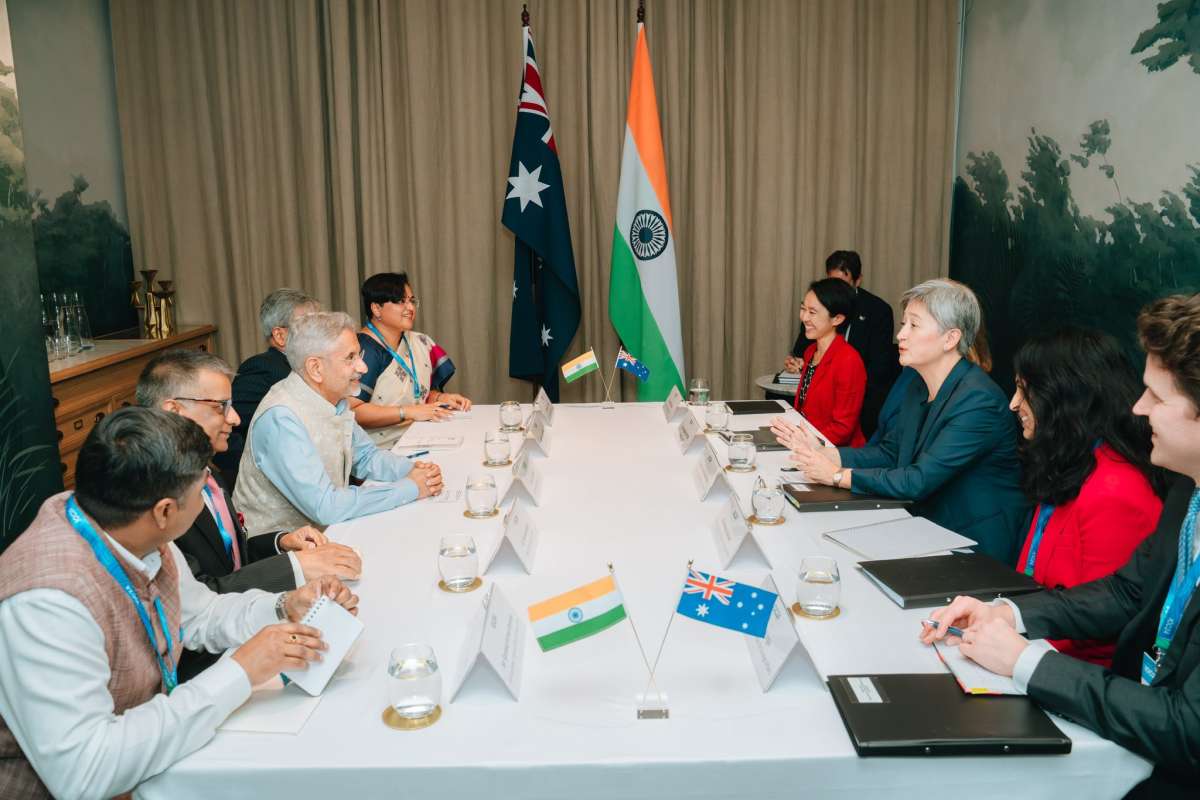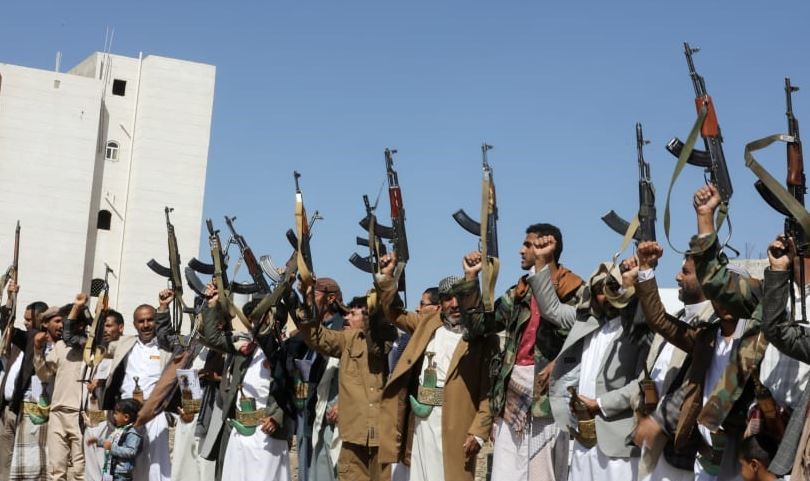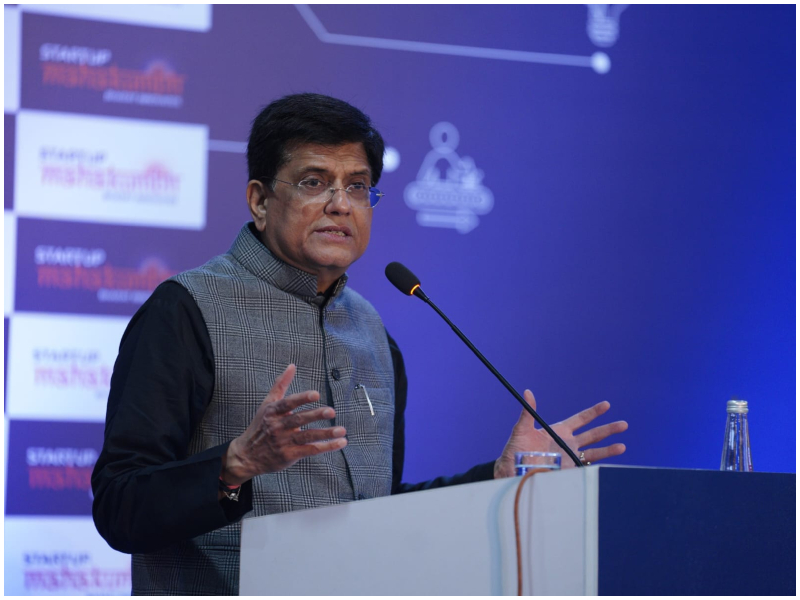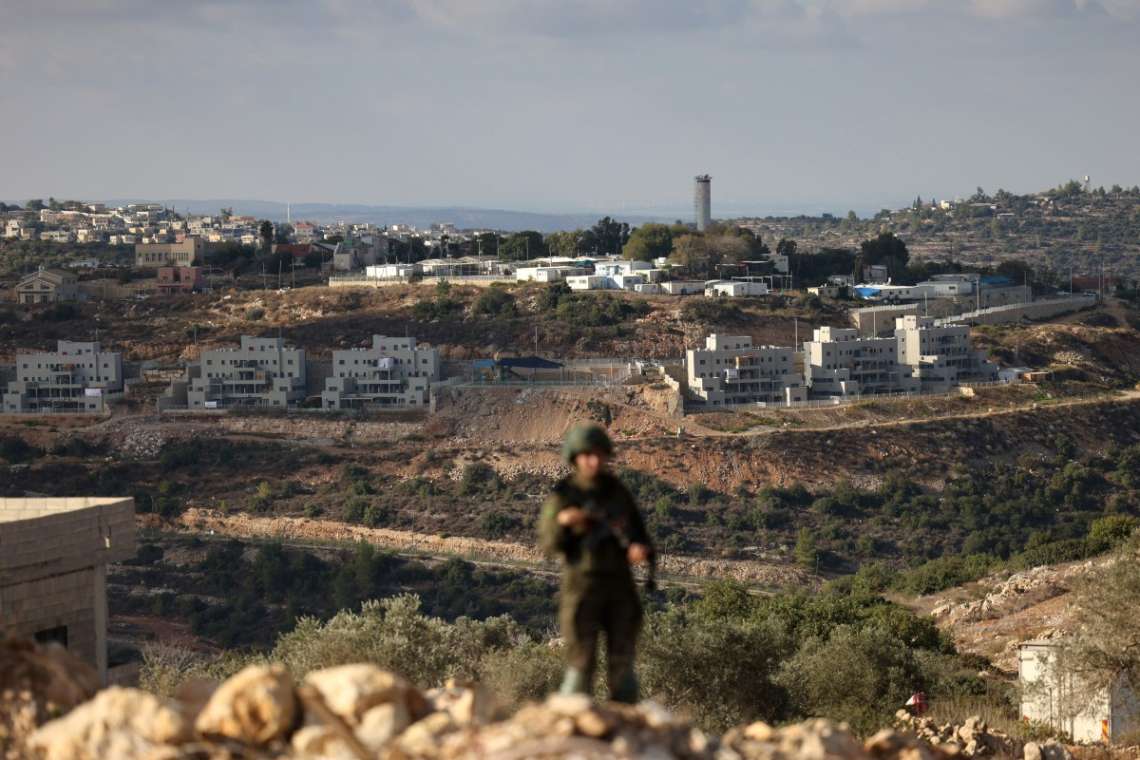While the world is changing and becoming more multipolar, with the US playing a different role than before and China rising as a major player, old-fashioned national rivalries remain significant. These complex challenges necessitate increased diplomatic effort and a fresh approach. Striking a balance between the pursuit of national interests and the responsibility towards the global community is more crucial than ever … writes Maheep
India presented a new perspective to conceptualise its relationship with the West. The perspective is based on emphasizing its distinctions from BRICS co-founders China and Russia. The new approach came through by way of a response to a query, during the recently concluded 60th Munich Security Conference, about India’s freedom to choose between multiple partners such as the US, the UK and Russia.
India’s Foreign Minister, Dr S Jaishankar, while participating in a panel discussion along with the US Secretary of State, Antony Blinken, and the German Foreign Minister, Annalena Baerbock, observed that while India is “non-Western, it is not Anti-Western. It enjoys strong and growing ties with Western nations, unlike other BRICS members like China and Russia. India’s foreign policy prioritizes engagement with various partners, not aligning with any specific bloc.
Dr Jaishankar and US Secretary of State Blinken also met on the sidelines of the Munich conference to discuss both global issues and their bilateral relationship. They reviewed progress on their deepening ties and exchanged notes on concerns about the Red Sea, Ukraine, and the Indo-Pacific also. Both sides emphasized the significance of free navigation in the Red Sea and committed to working together for peace in the Middle East. Blinken highlighted the broad range of shared priorities, from promoting democracy and tackling climate change to upholding the global order.
Dr Jaishankar spoke also to his Saudi Arabian counterpart Faisal bin Farhan Al Saud, focusing on the current situation in West Asia and the ongoing strategic partnership between their two nations. The Indian External Affairs Minister earlier held a “big picture chat” with his Norwegian counterpart Espen Barth Eide, focusing on the future of multilateralism and the global order.
India’s relationship with the West deserves a fresh perspective, one which acknowledges its unique position within the BRICS forum, which it co-founded with China and Russia. A study of the differences in India’s approach to the West from its fellow BRICS members yields valuable insights into India’s foreign policy priorities and its strategic choices in the complex global scenario.
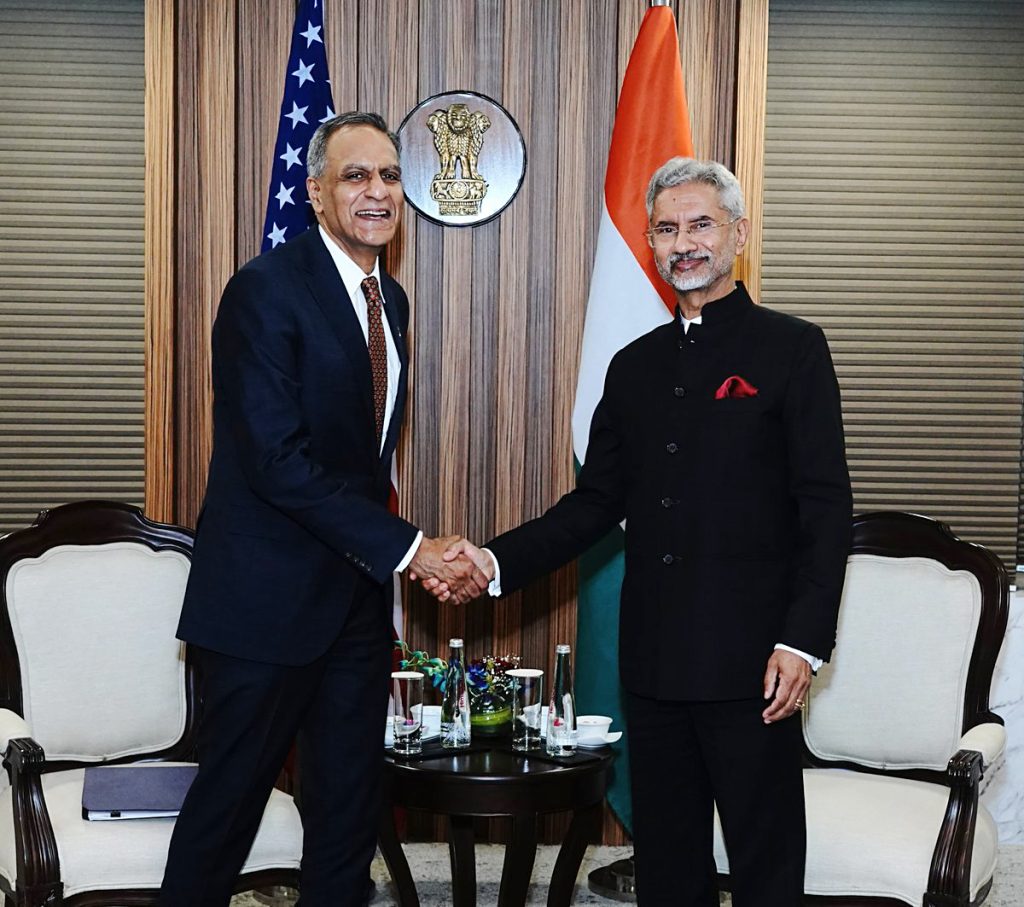
India has an ‘extremely strong relationship with the Western countries’, which has only been ‘getting better by the day.’ Even if Russia and China were to envisage BRICS as a potential counterweight to the West, India would maintain a nuanced approach. While they value the forum’s role in reforming global governance and providing a non-Western perspective, they do not countenance any attempt to mobilize against the West. India seeks to leverage the BRICS’ unique position without aligning with any specific bloc.
Despite India’s membership in BRICS, its relationship with the US has blossomed into its strongest phase ever. Both nations actively collaborate on diverse international initiatives, like the Quadrilateral Security Forum alongside Japan and Australia, demonstrating a shared commitment to regional stability and security. India’s involvement in BRICS does not hinder its partnership with the US but rather coexists within a broader framework of international cooperation.
This is an important new turn in the foreign policy discourses in India. While the top leadership in India and the US seem increasingly comfortable navigating geopolitical complexities together, it has had a matching influence on India’s broader foreign policy discourse. This discourse, historically shaped by anti-western views, continues to be influenced by various political actors in India, from the anti-imperialist left and nationalist right to the centrist Congress party and national security establishment. The Narendra Modi government has decisively shifted India’s approach to the US, moving away from past anxieties towards deeper engagement. To smoothen this transition, the Modi government portrays India as distinct from the West, yet not hostile to it. This framing allows the government to maintain support from the conservative nationalist quarters while pursuing closer partnerships with the US and Europe.
India has made clear in the past that the nature or direction its intervention in a particular international scenario cannot be read as a pointer or clue to its response to other international scenarios. In June 2022, India strongly criticized the European construct that India must join the US or China, assuming the world was divided into two hostile axes. India, as one-fifth of the world’s population and (then) fourth or fifth largest economy in the world, believes it is entitled to make its own foreign policy choices. Such choices need not be cynical or transactional but based on India’s own values and self-interests.
The traditional measures of a nation’s power, based on military strength and economic might, are no longer enough. Any assessment of opportunities now needs to consider a wider range of factors, including security threats and economic decentralization. This shift is driven by recent events, concerns about tech wars, and the limitations of interdependence in guaranteeing peace. As India navigates this “techade” (a coinage by PM Modi) of rapid technological advancement, building new and trustworthy collaborations will be crucial for navigating this complex and interconnected world.
In today’s world, a successful foreign policy can significantly contribute to a nation’s domestic development. India has resolved to tap into this opportunity, with visible results in various sectors from IT to infrastructure. New opportunities are emerging in areas like environmental sustainability, while partnerships have diversified from traditional industrial economies to more innovative partners. Additionally, nations are increasingly seeking influence beyond their borders, utilizing tools like connectivity and socio-economic collaboration. This is particularly relevant to India, which seeks to strengthen its regional presence post-partition. Recognizing this, the Modi government has invested in connectivity projects like roads, railways, and ports, fostering regional cooperation and transformation through a win-win approach.
While developed nations face workforce limitations due to demographics, there’s a chance for Indians to gain significant ground in the global workplace. This growth has largely been driven by individual initiative, with little government support. However, actively promoting the skilled Indian workforce internationally could lead to even better outcomes. One focus area is employment prospects for Indian students abroad, with countries like the US, Canada, Australia, and Europe being part of the agenda. India has established migration and mobility partnerships with several European nations, and others are showing interest. Additionally, India works to ensure fair treatment for Indian talent in these countries, while also addressing their community welfare and cultural needs in their new homes.
The current global uncertainties are causing countries, including India, to be more cautious about being involved in the international community, both in terms of implementing their plans and protecting themselves from potential risks. However, it’s impossible to completely isolate oneself from the globalized world we live in. Therefore, each country, especially major powers, needs to find a balance between the risks and benefits of international engagement. This has led to a renewed focus on “strategic autonomy,” which now means ensuring that a country has the necessary capabilities in crucial and sensitive areas. This shift towards a different kind of global interaction has naturally shaped a new perspective. In India, this perspective is known as “Atmanirbhar Bharat,” which translates to “Self-reliant India.”
While the world is changing and becoming more multipolar, with the US playing a different role than before and China rising as a major player, old-fashioned national rivalries remain significant. These complex challenges necessitate increased diplomatic effort and a fresh approach. Striking a balance between the pursuit of national interests and the responsibility towards the global community is more crucial than ever.
India’s G20 presidency served as a valuable example for navigating complex global politics. Firstly, it highlighted the concerns of the Global South through sustained focus, bringing the G20 back to its core objective of fostering international progress. Both defining these concerns and crafting collaborative solutions saw significant advancement. Secondly, India strategically balanced the challenges of conflict between East and West with the ongoing divide between North and South, leveraging one to mitigate the other’s impact. This involved employing innovative diplomatic strategies, like pursuing interim agreements, to facilitate crucial unanimous consensus building.
Although it’s tempting to view the rise of China and the decline of the US as a competition, their situations are more complex. While China’s growth can’t simply replace America’s weaknesses, their diverging world views will likely create uncertainty, limitations, and conflict across various areas, from supply chains and data flows to maritime security and pandemics. Europe, already attempting to shed its isolationist view, has been impacted even further by the Ukraine crisis. While it seeks global support for its actions, advocating for tougher stances against Russia while protecting its own interests adds complexity to its position, especially considering its past reliance on “change through trade.”
While the immediate situation may improve, India is keenly interested in how Europe’s relationships with the United States and Russia have shifted. These changes will likely influence how India approaches its engagements in Asia. The future of Germany’s foreign policy, painstakingly crafted over the past two decades, is a key unknown, as is how other powers will exploit this uncertainty. Regarding Asia, Europe’s stance will diverge from the US, as it no longer holds a position of global dominance. However, Europe’s awareness of potential risks has increased significantly in recent years. Ultimately, Europe’s future actions in Asia will likely be a complex balancing act between immediate needs and long-term strategic calculations.
India’s true impact on the global stage depends on how the world views us presently. It is therefore crucial to understand how this perception is evolving. For many years, India was considered a provider of basic services, but this image has changed significantly. It is now seen as a vital “knowledge economy” partner and collaborator in advanced fields like defence manufacturing and semiconductors. Improved infrastructure and business regulations further solidified our position as a top destination for foreign investment. The COVID-19 pandemic cemented our image as the “pharmacy of the world” due to our successful production of medication, and our subsequent economic recovery is seen as a significant achievement. Additionally, India’s active participation in international forums like BRICS and SCO, along with its independent stance on global issues, positions us as a valuable partner in conflict resolution and peace-building efforts.
As India aims to become a leading global power, it faces two major challenges: navigating the escalating East-West tensions fueled by the Ukraine conflict and addressing the widening North-South divide exacerbated by issues like COVID-19, debt crises, climate change, and food and energy insecurity. These challenges come on top of the inherent desire of any rising power to expand its allies and minimize potential conflicts. While navigating this complex global landscape might be a continuous endeavour, achieving its ambitious goals requires India to cultivate trustworthy partnerships and secure reliable sources of support. Simple binaries such as pro-west or anti-west can no longer capture the bewildering range of factors which go into the making of foreign policy calculations or choices.
(Dr Maheep is a leading analyst of Indian Foreign Affairs. He has been in teaching and research of International Relations and Global Politics for over a decade)

